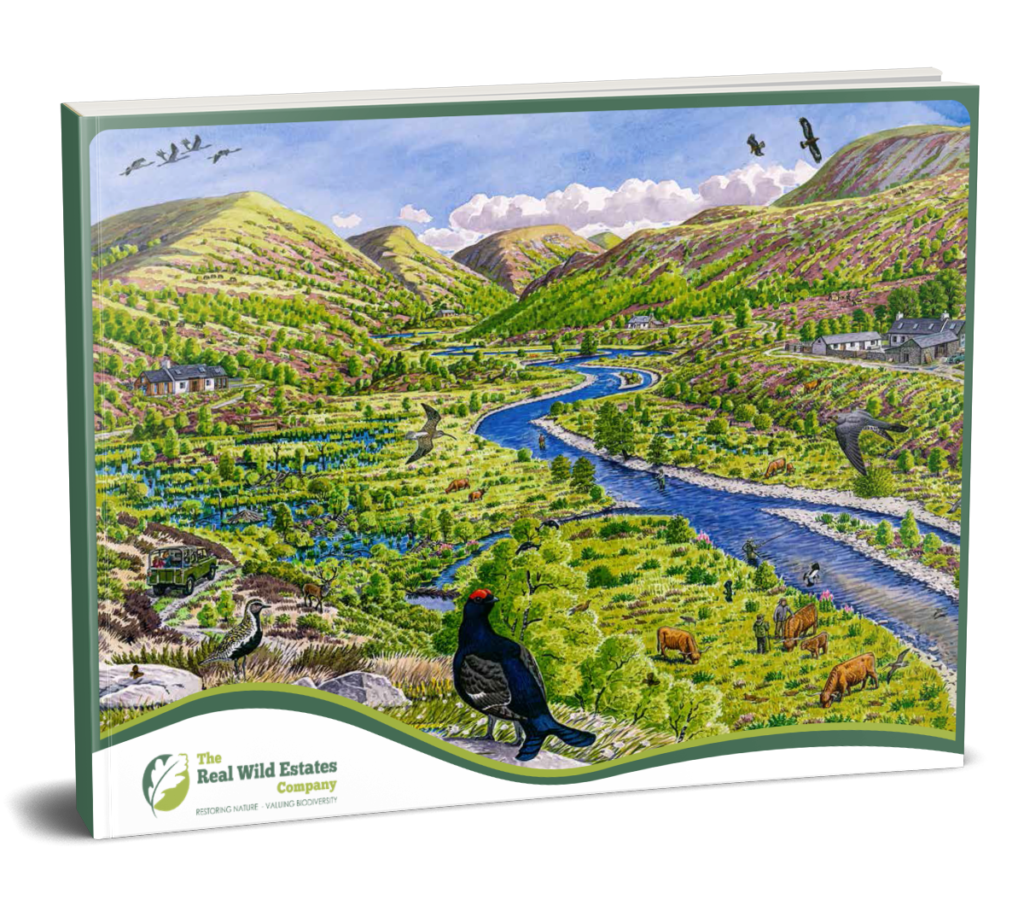Real Wild Estates understand that the need for sustainable food production with ecostysem restoration and habitat protection and creation presents a critical challenge for many of our clients. Approaches to nature-friendly farming must provide integrated and holistic solutions to this challenge and there are multiple strategies and techniques which we have seen successfully implemented to achieve this balance.


Nature-friendly Farming
Approaches to Nature Friendly Farming
Agroecology
This approach involves imitating the natural processes that exist in wider ecosystems, within agricultural landscapes. Introducing a wide variety of crop species and rotating between them; using cover crops to avoid bare soil; and including structural diversity with shrubs, trees and hedgerows all support food production whilst allowing for biodiversity enhancement through habitat creation and restoration, ultimately contributing to the creation of a range of ecosystem services.
Sustainable Farming Practices
The list of sustainable farming practices is ever-increasing, but should only be applied in a bespoke manner and one which suits the needs of a specific area. Examples include no-till agriculture and precision planting, reducing or entirely stopping use of chemicals and/or becoming organic certified, applying integrated pest management amongst others can all help to reduce the impact of more intensive farming techniques.
Habitat Preservation:
A key part of nature-friendly farming is the creation of space for nature. By designating areas on-farm for natural habitats like wetlands, grassland and woodlands, food sources and vital refuges are created for wildlife. Along field margins, buffer zones and hedgerows can be created to act as wildlife corridors which enhance the connectivity between habitats across the landscape.
Biodiversity-Friendly Land Use
Planning agricultural landscapes to include biodiversity-friendly elements like hedgerows, field margins, and wetlands can provide habitats for pollinators and other beneficial organisms.
Conservation Agriculture
So-called because of its ability to protect existing ecosystem health, this technique encourages farms to disturb the soil as little as possible. This helps to retain root structure and reduce erosion, simultaneously supporting greater carbon storage and creating healthier soils which in turn generate greater yields and quality of outputs.
Sustainable Livestock Management
Real Wild Estates work with partners to provide advice on rotational grazing, how to ensure and improve animal welfare. We strongly advise the removal of worming chemicals and that managers minimise use of antibiotics and hormones to make livestock farming more sustainable while reducing its ecological footprint.
Local and Sustainable Food Systems
When produced for agricultural land, our strategies look to support local food production and distribution systems as these help to support local economies and to reduce the environmental impact from transportation. For example, we recommend grazing with rare-breed livestock which can also be used to produce high quality meat for distribution to local restaurants.
Education and Outreach
Key to the success of implementing nature-friendly farming techniques is raising awareness amongst the farming sector, with policymakers, and with consumers about the role that farming plays beyond food production in biodiversity conservation, sustainable land management and the production of vital ecosystem services.
Policy and Incentives
Real Wild Estates take a hard line when it comes to nature restoration, and call for Government to step up its approach to supporting custodians of 70% of British land in the UK. This includes fairer policy, better incentives and subsidies, and proportional and realistic regulations which encourage farmers to adopt nature-friendly practices.
Our nature-friendly farming & regenerative agriculture services
We understand that achieving the balance between nature restoration and food production sometimes means making trade-offs. For our clients looking to make the transition from more intensive to reduced impact approaches to food and public goods and services production, we encourage taking a long-term perspective and lead with the ethos that nature knows best and provides vital ecological services for agriculture (such as pollination and pest control). Our advisory services take on each case as unique, identifying techniques most appropriate for the land in question to produce strategies which recommend sustainable approaches best-suited for our clients.
Get in touch today for guidance on balancing food production with biodiversity and bioabundance improvements on your land.
Balancing nature recovery with business viability ensures returns for nature and for you.

Download our brochure to learn more about our services
Please complete all the details below. Your data is subject to our Privacy policy here.
"*" indicates required fields